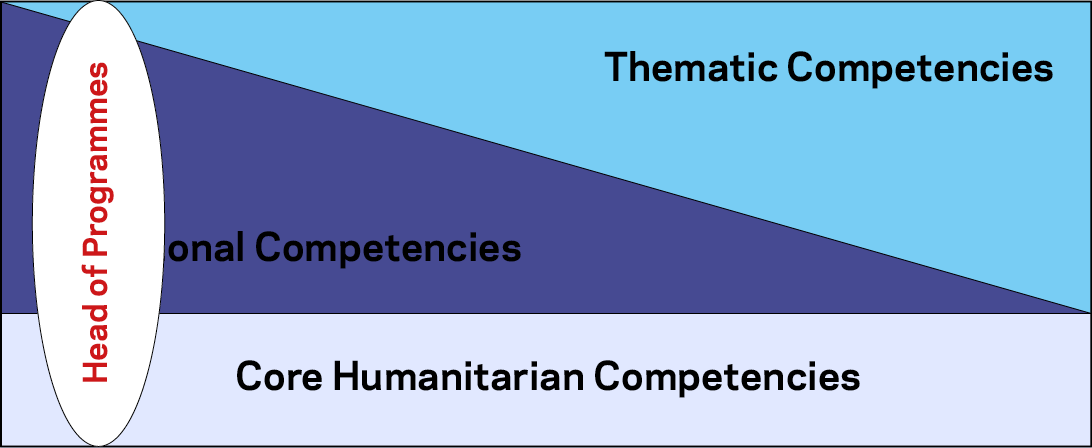HA Professions
Humanitarian Action Professions (HA Professions) works to explore and map linkages between competence sets, qualifications and occupations in the humanitarian sector.
A typical organisational structure showing the hierarchical links between frequently used job titles in the sector.
Click on each role title to open the detailed job profile.

Based on the analysis of typical roles in the sector, 11 frequently occurring job roles were identified. Although these roles have variations in the role and in job title, sufficient similarities existed to describe patterns of competencies required by these posts. The job profiles link to the organisations structure which demonstrates how these roles might fit into a typical organisational hierarchy. They are intended for use by humanitarian organisations, individuals and education providers. See the Guidance Notes for information on how to use the resources produced by HA Professions.
SUMMARY OF JOB PROFILES
Head of Programmes
Senior Advisor
- Portfolio management including strategic thinking and organisational development
- Project management including monitoring, evaluation and reporting
- People management including recruitment and management of specialists and sub-contractors
- Fundraising and resource mobilisation including proposal development
- Communication including representation, networking, advocacy, influencing, written communication, interpersonal and intercultural skills
- Capacity building including the ability to deliver training
Senior Advisor posts usually have a technical specialism and therefore require specific thematic competencies related to their area of expertise.
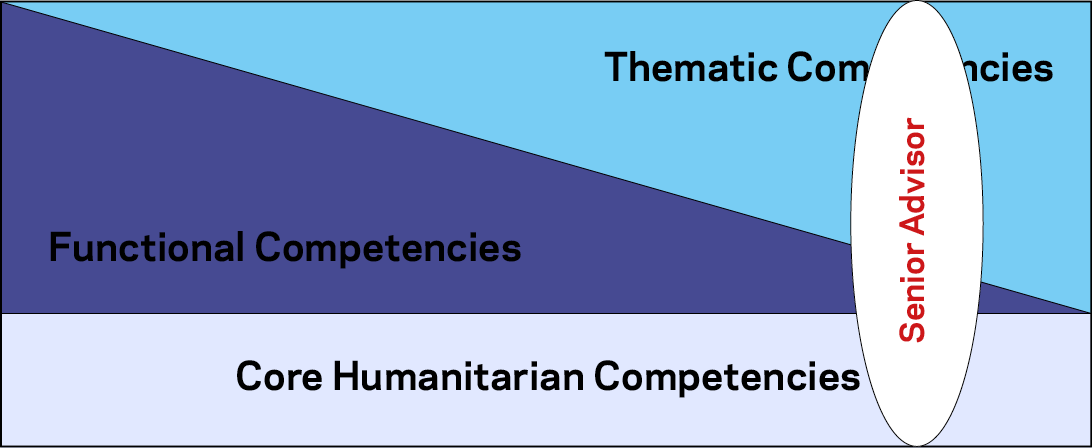
Country Director
- Portfolio management including strategic thinking, organisational and portfolio development and management
- Programme management including development and design
- Project management including issue and risk management and problem solving
- People management
- Fundraising and resource management including proposal development
- Financial and budget management
- Stakeholder management including donor engagement
- Communication including representation and networking, interpersonal and intercultural skills
- Capacity building and specifically coaching and mentoring
Country Director posts do not usually have a technical focus although they may require a basic knowledge of key issues across a range of thematic areas.
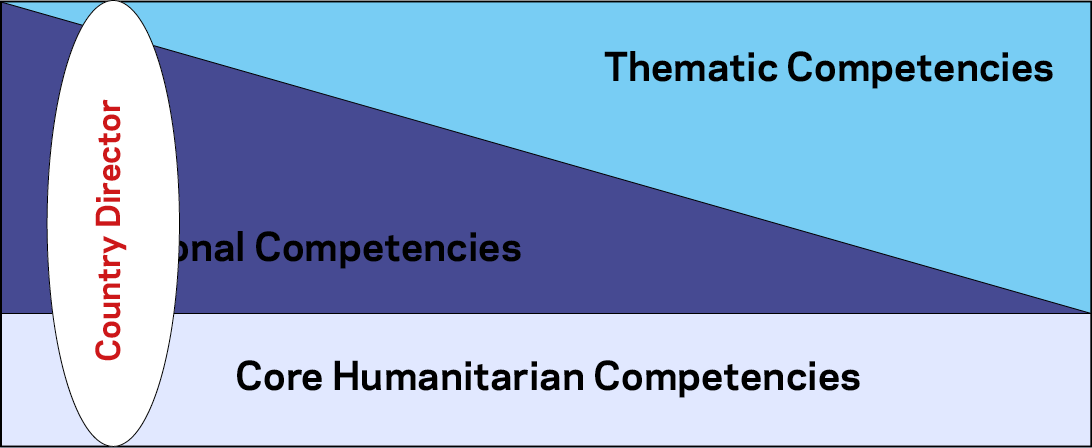
Programme Manager
- Portfolio management including strategic thinking and organisational development
- Programme development including design and management
- Project management including issue and risk management, problem solving, monitoring, evaluation and report, and donor regulations and guidance
- People management
- Fundraising and resource mobilisation including proposal development
- Financial and budget management
- Stakeholder management
- Communication including representation and networking, advocacy and influencing, interpersonal and intercultural skills
- Capacity building including the ability to delivery training
Depending on the focus and scope of the role, the Programme Manager may be a generalist with strong functional skills but may be required to have thematic expertise particularly if they are coordinating project work in a thematic area such as Nutrition, WASH, Shelter etc.
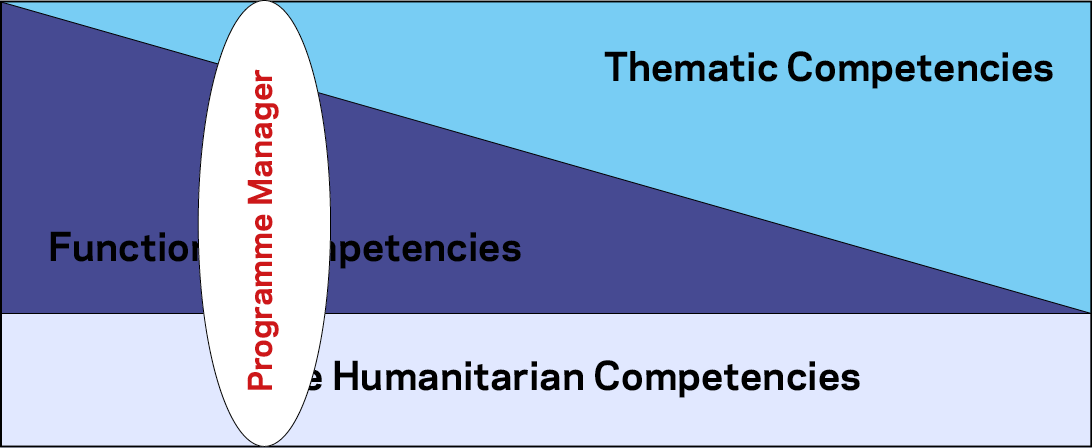
Logistics Manager
- Project management including organisational skills, issue and risk management and problem solving, monitoring, evaluation and reporting
- People management
- Financial and budget management
- Information management including analysis of data and information storage
- Communciation including interpersonal and intercultural skills
- Capacity building including the ability to deliver training
The post holder will require competencies in:
- Procurement
- Import and export
- Distribution and warehousing
- Fleet management
- Transportation
- Facilities and IT management
In addition, the post may require competencies in:
- Security management
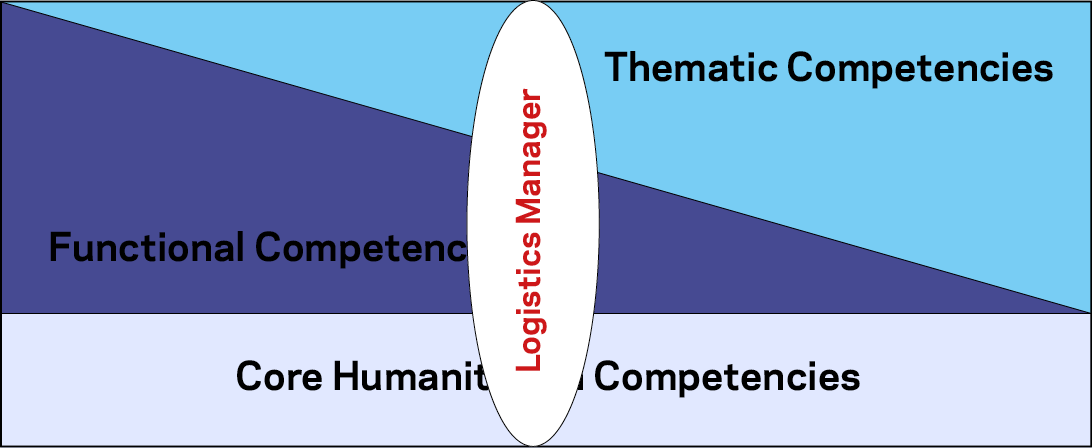
Advisor
- Portfolio management in the areas of strategic thinking and organisational development
- Project management including monitoring, evaluation and reporting
- People management
- Fundraising and resource mobilisation including proposal development
- Communication including advocacy and influencing, written communication, and interpersonal and intercultural skills
- Capacity building including the ability to deliver training
Advisor posts usually have a technical specialism and therefore require specific thematic competencies related to their area of expertise.

Coordinator
- Project Management including coordination and collaboration, monitoring, evaluation and reporting, and donor regulations and guidance
- Financial and budget management
- Stakeholder management
- Communication skills including representing and networking, advocacy and influencing, negotiation, written communication, and interpersonal and intercultural skills
Depending on the role, the Coordinator may be a generalist with strong functional skills but may be required to have a level of thematic expertise particularly if they are coordinating project work in a thematic area such as Nutrition, WASH, Shelter etc.
Project Manager
- Project management including issue and risk management and problem solving, monitoring and evaluation and reporting, donor regulations and guidance
- People management including recruitment and management of specialists and sub-contractors
- Fundraising and resource mobilisation including proposal development
- Finance and budget management
- Resource management including management of technical, administrative and financial resources
- Stakeholder management
- Communication including written communication skills, interpersonal and intercultural skills
The Project Manager is required to have a mix of functional skills and thematic expertise in a particular area such as Nutrition, WASH, Shelter etc.
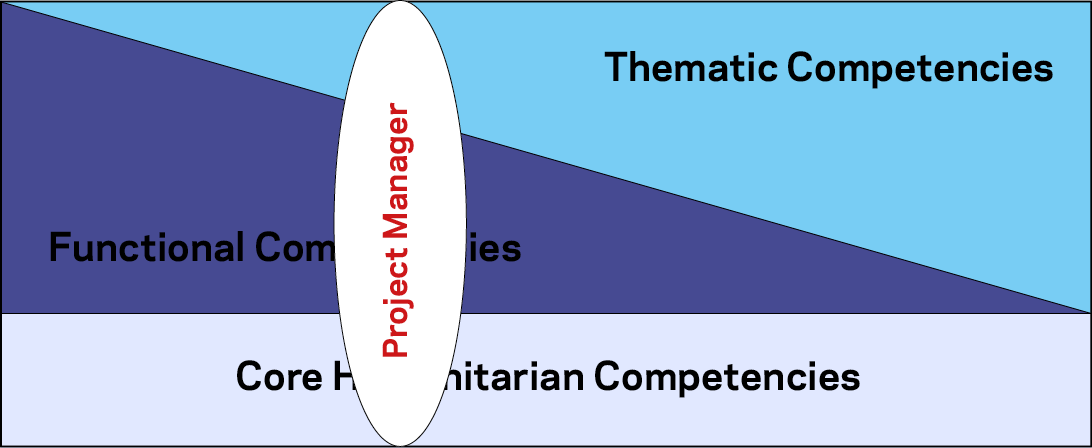
Officer
- Project management and specifically organisational skills, issue and risk management and problem solving, monitoring, evaluation and reporting and project implementation
- People management
- Financial management specifically in the area of budget monitoring
- Resource management and specifically the management of technical, administrative and financial resources
- Stakeholder management particularly at community level with community mobilisation
- Information management in the area of data management and processing
- Communication including interpersonal and intercultural skills
- Administration
An Officer will have a mix of thematic and functional competencies. If they are working on a project with a particular thematic focus, they may be required to have a higher level of thematic expertise carrying out tasks directly related to the area of expertise.
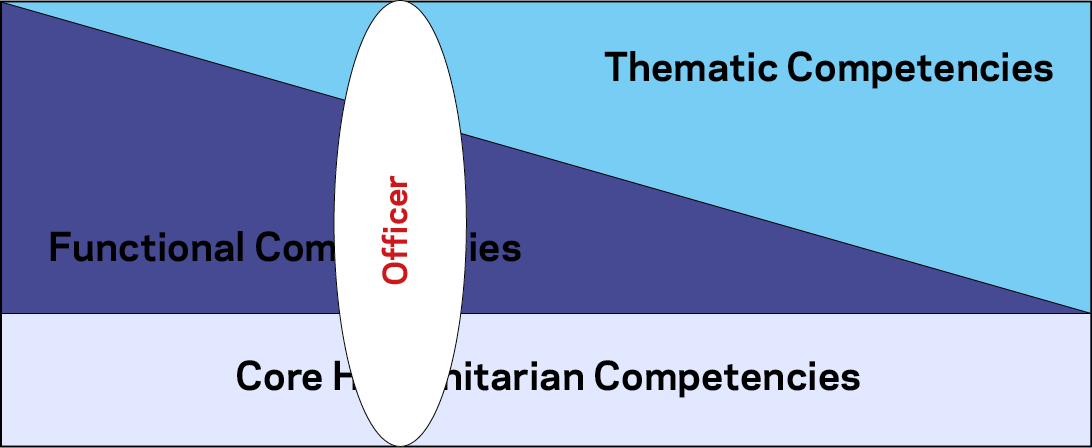
Administrator
- Project management particularly focused on the prioritisation of tasks and efficient use of time, and administrative policies and guidelines
- Resource management particularly in the management of technical, administrative and financial resources
- Information management including data management, processing and storage
- Communication including interpersonal and intercultural skills
- Capacity building focused particularly on building the skills of national staff
- Administration including attention to detail and accuracy, and application of organisational policies, procedures and work methods
Administrators can have a focus on an operational or programmatic area such as HR, Logistics, Finance & Accounting, Grants, WASH, Health etc. They may require a basic knowledge of key issues across a range of thematic areas.

Assistant
- Project management in the specific areas of organisational skills, project implementation and prioritisation of tasks and efficient use of time
- Stakeholder management with a particular focus on community mobilisation
- Information management including data management and processing and analysis of data
- Communication including interpersonal and intercultural skills
- Administration including attention to detail and accuracy
An assistant can have a thematic focus on and may require a basic knowledge of key issues across a range of technical areas.

The purpose of the HA Professions is to support:
- Humanitarian agencies to recruit suitable, well-qualified people who have the competencies the organisation needs;
- Individuals to develop competencies that are needed in the sector and secure roles that are appropriate to their competency sets;
- Educators to provide learning opportunities that enable individuals to develop the competencies that humanitarian agencies need.
HA Professions gathers information from humanitarian agencies in order to develop the mapping and understand:
- How they organise their job functions and how career progression through the organisation happens;
- How they determine the necessary skills, competencies and qualifications for particular roles;
- Whether there are differences across offices on how this is done or which guidelines are applied;
- If and how a mapping such as this might be useful to them.
HA Professions is led jointly by RedR UK and the University of Groningen, with support of the University of Iceland, the University of Iasi and the Sofia University.

